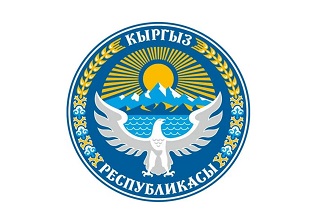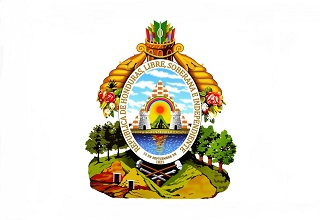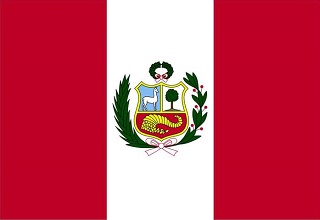Regarding the Inspection and Quarantine Requirements for Sunflower Seed Cake from Tanzania to China
I. Inspection and quarantine basis
(I) "Biosafety Law of the People's Republic of China";
(II) "Law of the People's Republic of China on Entry and Exit Animal and Plant Quarantine" and its implementing regulations;
(III) "Regulations on the Supervision and Administration of Inspection and Quarantine of Imported and Exported Feeds and Feed Additives";
(IV) "Protocol on the Sanitary and Phytosanitary Requirements for Sunflower Seed Cakes Exported from Tanzania between the General Administration of Customs of the People's Republic of China and the Ministry of Agriculture of the United Republic of Tanzania".
II. Names of commodities allowed for entry
The sunflower seed cake in this announcement refers to the by-product of sunflower seeds grown in Tanzania after oil is separated by pressing and leaching.
III. Enterprise registration
The sunflower seed cakes exported to China should come from processing enterprises approved and registered by China Customs, which are recommended to China Customs by the Tanzania Plant Health and Pesticide Management Bureau under the Ministry of Agriculture of Tanzania. After inspection or review by China Customs, it will be registered, published on the website and updated dynamically.
IV. Pests of concern
Sunflower seed cakes exported to China must not carry the following pests:
1. Callosobruchus analis
2. Sorghum halepense
3. Amaranthus graecizans
4. Orobanche spp.
5. Verticillium dahliae
V. Product production and export requirements
(I) Production, storage and transportation.
1. The Tanzanian Plant Health and Pesticide Management Bureau should strengthen official control over sunflower seed cake processing plants exported to China, implement daily supervision, and confirm the safety and hygiene of their products. Processing companies should establish a good hazard analysis and critical control point (HACCP) system and traceability management system and operate them effectively, or implement management in accordance with their concepts. Strengthen the sanitation control of raw materials, processing, warehousing, transportation and other links to prevent sunflower seed cakes from being contaminated by soil, animal carcasses, animal feces and feathers, and do not add toxic and harmful substances and any animal-derived ingredients.
2. Sunflower seed cakes exported to China should be stored separately from raw materials and other products. Storage warehouses should take effective measures to prevent rats, insects and birds to prevent secondary contamination by harmful organisms.
3. The packaging used for sunflower seed cakes exported to China should be clean and hygienic, and the means of transportation should be thoroughly cleaned and disinfected when necessary.
4. Each container loaded with sunflower seed cakes exported to China or each hold of a bulk ship should have at least one packaging mark indicating the name of the processing plant, registration number and the English words "Sunflower seed cake exported from the United Republic of Tanzania to the People's Republic of China". The product label of each batch of sunflower seed cakes exported to China should comply with the requirements of the Chinese national standard "Feed Label" (GB 10648).
(II) Pre-departure quarantine and certificate requirements.
1. Sunflower seed cakes that have passed inspection and quarantine are allowed to be exported to China.
2. Each batch of sunflower seed cakes exported to China should be accompanied by a phytosanitary certificate issued by the Tanzanian Phytosanitary and Pesticides Authority in accordance with the requirements of the International Standard for Phytosanitary Measures No. 12 "Guidelines for Phytosanitary Certificates". The certificate should indicate the name and registration number of the manufacturer, the container number or the name of the ship (when shipped in bulk), and the additional declaration column should state in English: "The consignment complies with the requirements of the Protocol of sanitary and phytosanitary requirements for the export of sunflower seed cake from Tanzania to China and is free of quarantine pests of China's concern". If the sunflower seed cakes are treated with pests before export or during transportation, the pest control method and treatment indicators should be indicated in the certificate.
VI. Entry Inspection and Quarantine
When sunflower seed cakes arrive at Chinese ports, Chinese Customs will implement inspection and quarantine in accordance with the following requirements.
(I) Certificate verification.
1. Verify whether they are from registered enterprises.
2. Verify whether the phytosanitary certificate is authentic and valid.
(II) Cargo inspection.
According to the relevant laws, administrative regulations, rules and regulations, and in combination with the requirements of this announcement, sunflower seed cakes entering the country shall be subject to inspection and quarantine, and entry shall be allowed after passing the inspection.
(III) Disqualified treatment.
1. If the plant quarantine certificate does not meet the requirements, it shall be returned or destroyed.
2. If live quarantine pests or other live pests are found, they shall be treated with pest control, returned or destroyed.
3. If soil or genetically modified ingredients not officially approved by China are found, they shall be returned or destroyed.
4. If animal feces or carcasses, poultry feathers, plant seeds or those that do not meet the safety and sanitation standards of Chinese feed are found, they shall be treated with harmless treatment, returned or destroyed.
5. If the packaging marks and product labels are found to be unqualified, they shall be corrected, returned or destroyed.
If the above-mentioned unqualified situations are found, the Chinese Customs will notify the Tanzanian Plant Health and Pesticide Management Bureau, and take measures such as suspending the export qualifications of relevant processing plants or even suspending the export of Tanzanian sunflower seed cakes to China according to the severity of the unqualified situation.
GACC
Aug. 30, 2024




